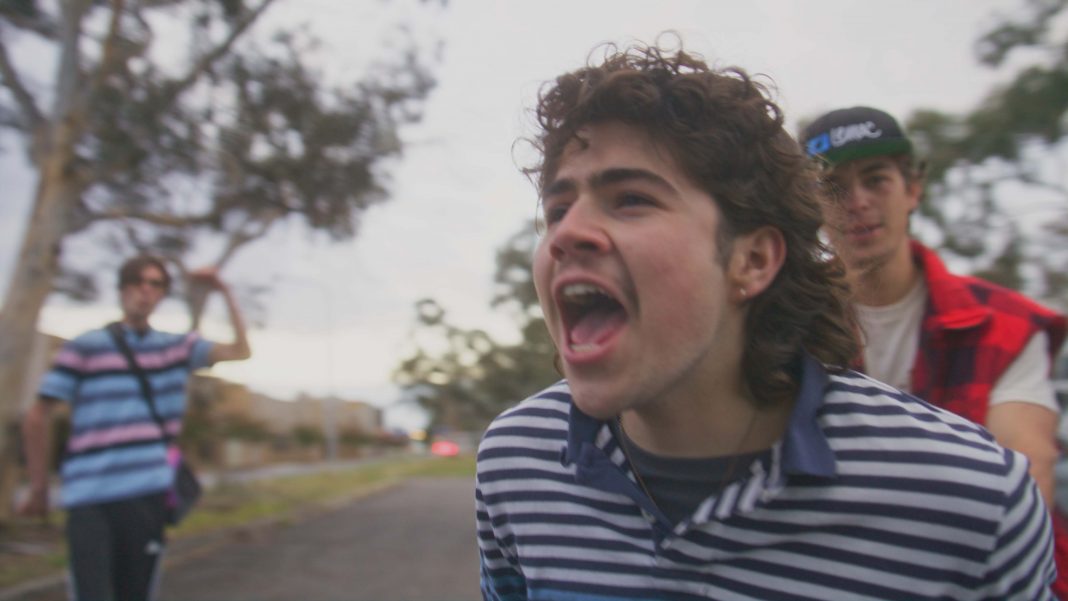With only 2 percent of people who die in Australian hospitals meeting the strict criteria to be eligible for organ donation, there is a need for more donors to join the registry. This World Organ Donation Day, 13 August, a team of Canberra creatives is hoping to catch the attention of young people and inspire them potentially help save lives.
Originally created as part of a campaign for DonateLife Week the short film Australia’s Greatest Eshay targets the group least likely to be on the organ donation list. Here in Australia, you have to be 16 years old to sign up for the organ donation list, with youth donors being the most underrepresented demographic on the list.
“For people aged 16 to 24, only around one in 10 are registered but for young men, it’s only 6-7 percent,” says screenwriter, Shane Walsh-Smith.
Wanting to speak to young men, they decided to step away from the typical emotional campaign and into the completely opposite direction. The team behind the project, Wattle St, had the idea of something a bit more tongue-in-cheek, something the demographic could identify and laugh with, the eshay.
“An eshay is a subculture of young people who dress in expensive sports gear, talk in Pig Latin and generally behave aggressively and moronically in public places, there’s also often a criminal element behind it to sort of petty theft and drug use,” explains Mr Walsh-Smith.
Shot in Mitchell with Canberra actors and creative team, the short film, shot in documentary-type style centres around David ‘Dilfer’ Miller, a young man who is constantly causing trouble. His untimely death shows a different side of the perpetual pest, he had signed up to be an organ donor and in doing so saved multiple lives.
“We’ve got David Miller, Dilifer, who is sort of a drain on society, he’s a thug, and a petty thief and basically annoys everyone here but it comes into contact with,” says the screenwriter “It’s not until after his death that all of the people who he’d annoyed in life realised that he was an organ donor and his organs went on to save the lives of several people and they all turned up at his funeral to pay tribute to him,”
Taking a bit of artistic licence with the recipients paying their respects, Mr Walsh-Smith says he discovered during research that there is a lot of anonymity in place in Australia. When a potential donor dies, the family makes the choice if the deceased will donate and what organs can be taken, with one donor able to save up to seven lives.
The film running for just over a minute takes longer to watch than it does to join the organ donor register. However, there is slightly more to it than joining the registry, discussing your wishes with your family is an important step, as they get the final say on donating your organs. Opening up about the topic can also encourage those around you too, especially younger people.
“Conversation is important, talking with friends and family. If you’re on the list, I recommend talking to them. If you’re not on the list but thinking about it, I think having a conversation because the research is that if people know that someone else they know is on the list, they’re more likely to register themselves,”
A registered donor himself, Mr Walsh-Smith says he likes the thought of someone getting to extend their life with the organs he would no longer be using. He says the difference it could make in someone’s life is immense and encourages others to sign up to do the same.
“If David Miller, Dilifer, can do it then literally anyone can and should because we are all better than him.” Smiles Mr Walsh-Smith.
Watch Australia’s Greatest Eshay:
To find out more about organ donation and to sign up head to; donatelife.gov.au
Canberra Daily would love to hear from you about a story idea in the Canberra and surrounding region. Click here to submit a news tip.



